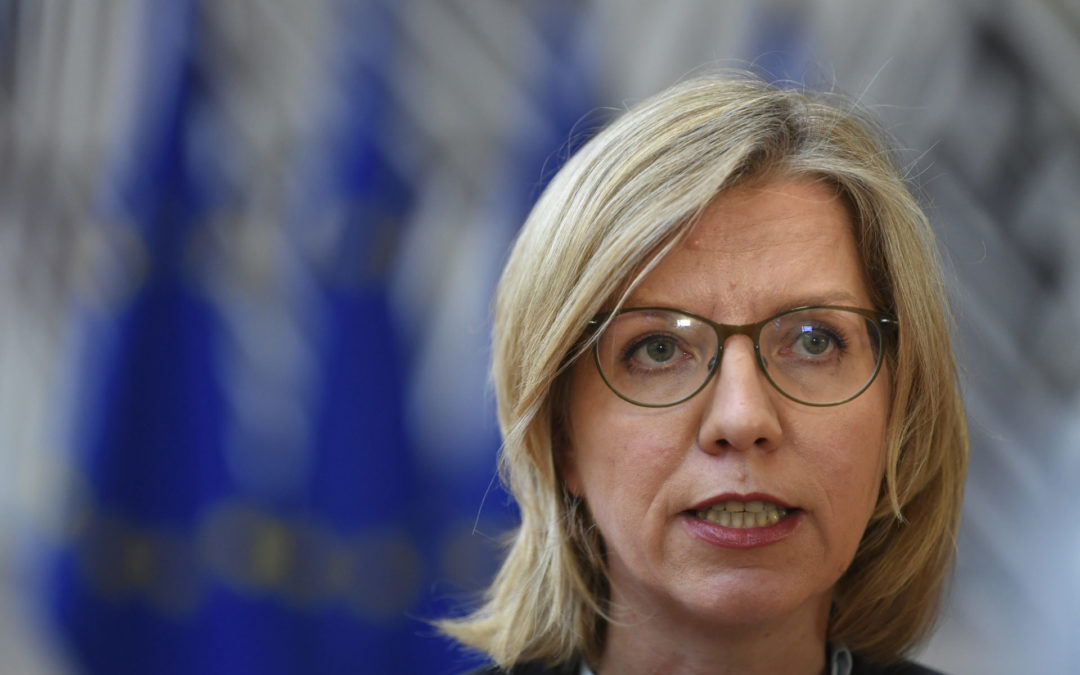 Have the article read by OpenAI (Beta). Please note that AI translations may take some time to process.
Have the article read by OpenAI (Beta). Please note that AI translations may take some time to process.Genetic engineering – Austria warns European Commission of risks
Brussels (APA) – Austria’s Environment Minister Leonore Gewessler and Johannes Rauch, the Minister responsible for consumer protection, have warned against the risks of New Genomic Techniques. In a letter to the European Commission, the two Green politicians demanded “a safety assessment for genetically modified products and the retention of the labelling obligation,” as Rauch’s ministry announced on Wednesday. The Commission intends to present its plans on New Genomic Techniques on 7 June.
“For consumers, this would mean that they would no longer be free to choose whether genetically modified products end up on their plates,” the statement continued. In their letter to the responsible European Commissioner Stella Kyriakides, Gewessler and Rauch demanded “strict regulation and the maintenance of the proven, clear rules for the protection of consumers and the environment.” There was also a need for “further research into the effects on the environment and free access to seeds for farmers.”
Rauch said that “authorization, risk assessment and compulsory labelling must apply to so-called New Genomic Techniques.” Especially in the case of products “that can have a variety of effects on humans, animals and the environment, a sufficient and balanced scientific foundation must be the basis of any new regulation,” said Gewessler.
Austrian environmental organizations welcomed this step. “The Commission’s plans on New Genomic Techniques are full of loopholes and ignore entire problem areas such as the environment and biodiversity, liability issues or patents,” said Brigitte Reisenberger of GLOBAL 2000, according to a press release. According to Sebastian Theissing-Matei of Greenpeace Austria, there is also a need for “complete labelling of genetically modified food.”
Florian Faber of ARGE Gentechnik-frei demands “clear limits and control mechanisms, also for New Genomic Techniques.” “Weakening the current mandatory labelling and traceability for New Genomic Techniques would endanger coexistence in agriculture and thus organic production as well as all other GMO-free production in Europe,” warned BIO AUSTRIA chairwoman Gertraud Grabmann. (April 5)
Europe to have a “cyber shield” and a “cyber reserve”
Paris (AFP) – To ensure that Europe can withstand major cyberattacks, such as those suffered by Ukraine, it plans to set up a “cyber shield”, including a “cyber reserve army”, European Commissioner Thierry Breton announced at the International Cyber Security Forum on Wednesday.
These measures will be provided for in a new regulation, the “Cyber Solidarity Act”, which Breton will present on 18 April.
“Our ambition is to create a ‘European cyber shield’ that will allow better detection of attacks upstream. Today, it takes an average of 190 days between the start of the spread of malware and the moment it is detected,” said Breton, who is in charge of the Internal Market and Digital Affairs. “We want to drastically reduce this time to a few hours,” he said.
The detection of attacks will be entrusted to a European network of six or seven SOCs (Cyber Security Operational Centres), also provided for in the Cyber Solidarity Act. (April 5)
Police raid on European People’s Party headquarters
Brussels (Belga) – Belgian and German police raided the headquarters of the European People’s Party (EPP) in Brussels on Tuesday, the party said. According to the EPP, the action is related to an ongoing investigation in the eastern German state of Thuringia.
“The party cooperates in full transparency with the relevant authorities and provides all relevant information and documentation. As this is an ongoing judicial investigation, the EPP will not comment further,” the party said in a statement.
According to German public broadcaster MDR Thüringen, the search is part of a corruption investigation into Mario Voigt, the chairman of the local branch of the Christian Democratic Party CDU. A spokesman for the public prosecutor in the state capital Erfurt confirmed that the operation took place at the request of the German authorities.
Investigators are searching the EPP for information about its online election campaign ahead of the 2019 European elections. Voigt had been brought to Brussels at the time to lead that campaign. He is suspected of having received money from a local Thuringian company in exchange for it being awarded a contract as part of that online campaign.
The EPP is the umbrella party of 81 Christian Democratic and Conservative parties from 43 countries. The political family forms the largest political group in the European Parliament. (April 4)
This is a compilation of the European coverage of enr news agencies. It is published Tuesdays and Fridays. The content is an editorial selection based on news by the respective agency.
